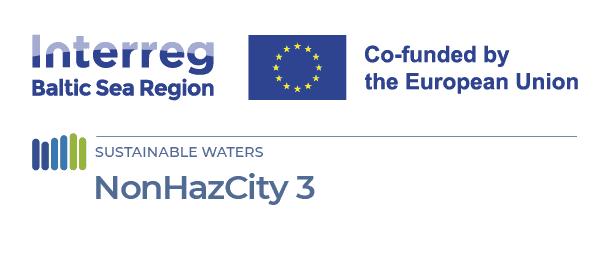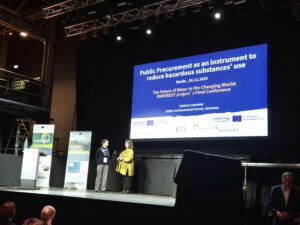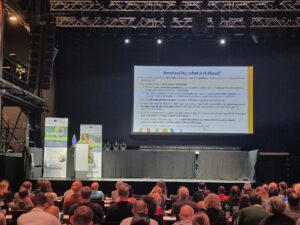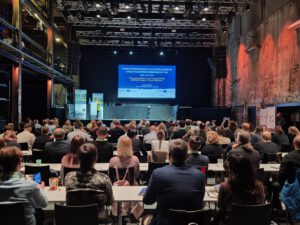
Conference in Berlin Highlighted Urgent Action on PFAS and Micropollutants
21 November 2025
The international conference “The Future of Water in the Changing World: Innovative Solutions Against PFAS and Micropollutants” 19-20 November concluded in Berlin after two days of high-level discussions, expert exchanges, and strategic planning for cleaner and safer waters across Europe and the Baltic Sea region.
Hosted as a key event for the Baltic Sea Region, the conference focused on emerging regulatory requirements, scientific insights, and technological innovations aimed at combating organic micropollutants—ranging from pharmaceuticals to persistent per- and polyfluoroalkyl substances (PFAS).
Key Themes and Discussions
Over the two days, European, national, and local policymakers joined leading researchers, environmental agencies, and practitioners to exchange insights on:
- Aligning new EU policies with implementation needs in the Baltic Sea region.
- Presenting latest monitoring data and recommendations for tracking PFAS in aquatic environments.
- Applying risk-based assessment frameworks to evaluate environmental and public health impacts.
- Showcasing tested wastewater treatment technologies capable of removing organic micropollutants.
- Building capacity for upstream prevention measures to reduce hazardous substances at the source.
- Identifying opportunities for cross-sector partnerships to strengthen water quality and sustainability efforts.
High-Level Representation
The conference brought together an impressive roster of speakers, including representatives from:
- The European Commission
- Ministries and environmental agencies across the Baltic Sea Region
- Local authorities advancing PFAS awareness
- Leading water utilities pioneering micropollutant removal technologies
- Renowned researchers and scientific institutions
- The EU Strategy for the Baltic Sea Region (EUSBSR)
- The HELCOM Secretariat
- The UBC Sustainable Cities Commission
Looking Forward
By the end of the event, participants emphasized the need for collaborative, science-driven decisions and accelerated technological deployment to protect Europe’s water resources from complex chemical threats. The conference marked a significant milestone in strengthening regional efforts to safeguard the Baltic Sea and contributed to shaping future policy and innovation pathways for the entire continent.








